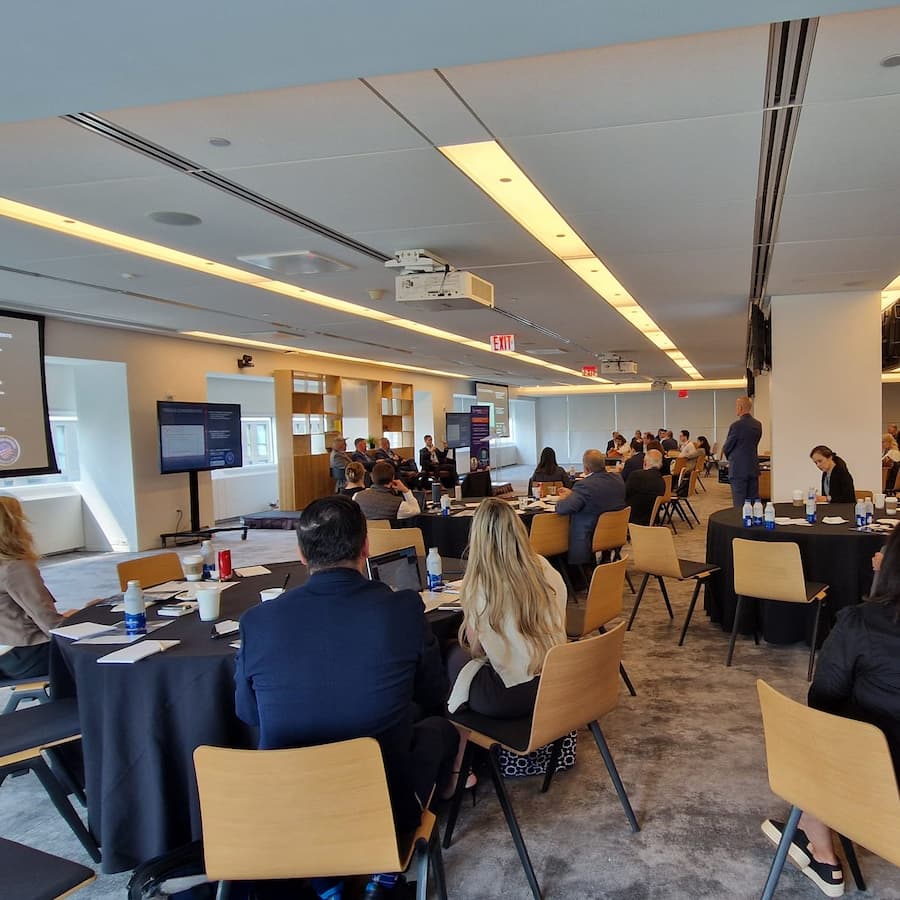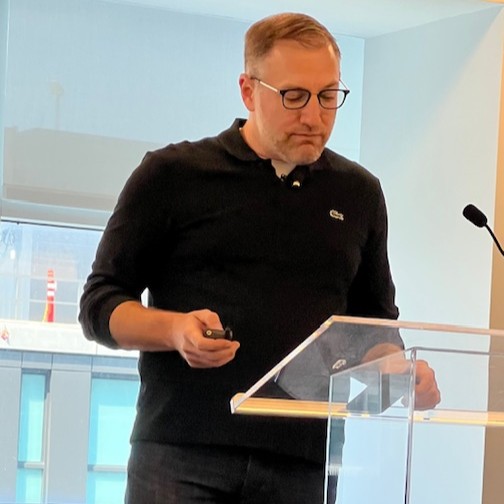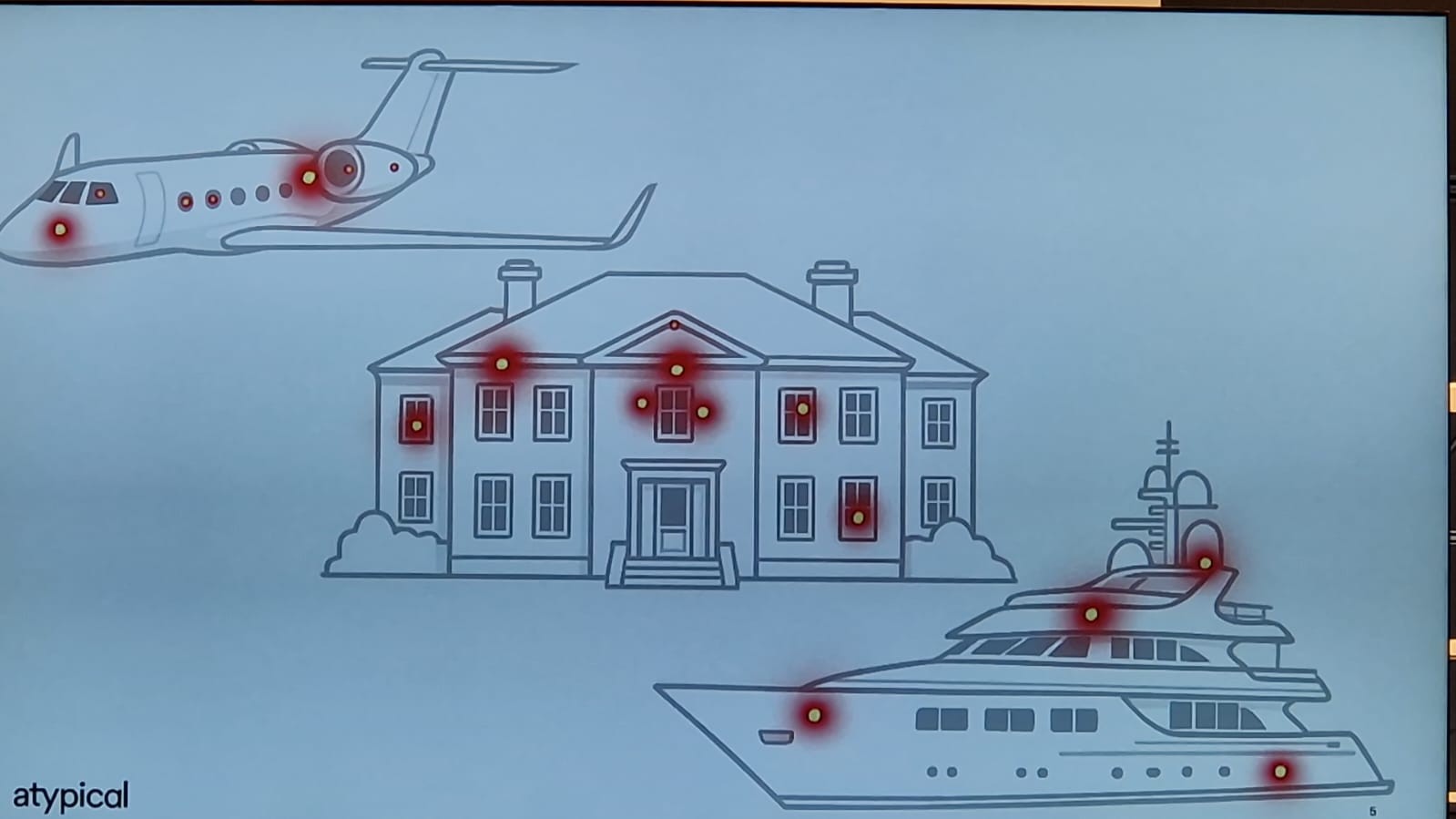Technology
Move Fast – Stay Secure

This article, stemming from our forum on cybersecurity in Manhattan last week, looks at how AI reshapes digital defense for family offices.
The following article comes from Chris Wake (pictured below), the founder of Atypical, a venture fund. Chris spoke at last week’s Family Wealth Report Family Office Cybersecurity Forum. (See reports here and here.) Chris explores the effect that AI, for example, has on the cybersecurity calculus.

Chris Wake
The same technologies that enabled generational wealth creation have become the greatest threat to preserving it. This paradox lies at the heart of modern cybersecurity challenges facing ultra-high net worth families and their offices.
The velocity-vulnerability connection
For generations, wealthy families understood a fundamental truth:
speed creates opportunity. Faster capital movement, quicker
decisions, and real-time market access each provided competitive
advantages that built fortunes. But here's what wasn't
anticipated – every system that increased velocity also
increased visibility, and every efficiency created a new attack
surface.
The evolution from physical ledgers to computers to smart phones to AI assistants has been a double-edged sword. Each technological leap forward that made family offices more efficient also made them more exposed. Virtually every family office that once operated in relative obscurity now has a digital footprint spanning continents.
From social engineering to social
architecture
Traditional social engineering was a slow, methodical approach to
infiltrating organizations. Today's threat landscape has evolved
into something far more sophisticated: social architecture.
Adversaries aren't using just one AI tool anymore – they're
orchestrating entire ecosystems of artificial intelligence.
The speed differential is staggering. Modern AI systems can create a fake consulting firm in 60 seconds, complete with AI-generated headshots and LinkedIn profiles, then target family members or board members with direct outreach. Where social engineering was slow and labor-intensive, social architecture is incredibly fast and scalable.
The time factor: AI vs. human response
Consider this scenario: An AI-powered attack begins targeting
your family office. Within the first minute, AI systems have
initialized, scraped public data, and identified target profiles
while your organization continues normal operations, completely
unaware.
By 30 seconds in, fake personas are generated, and outreach content is created. At 45 seconds, a coordinated attack launches across multiple vectors – and only then do you receive your first security alert. Within 60 seconds, the breach is achieved with complete social architecture deployed, while your security team is just beginning to mobilize.
This isn't theoretical – this represents the current speed gap between AI-powered attacks and human response capabilities.

Threats
The invisible compromise
Perhaps even more concerning than social engineering attacks is
how AI can exploit systems directly, without needing to trick
humans at all. What appears as a secure digital ecosystem to IT
teams – with all systems showing green status indicators –
looks entirely different through an AI lens.
Where humans see individual, secure systems, AI identifies interconnected vulnerabilities and maps attack paths. It might start with weak guest access in collaboration tools, harvest credentials, access email systems, find cloud storage keys, and ultimately compromise investment platforms. The front door may be locked, but AI can identify dozens of windows that humans never knew existed.
Beyond higher walls: intelligent
coordination
The traditional cybersecurity approach of building higher walls
and stronger defenses is fundamentally mismatched with this new
threat landscape. The future of family office security isn't
about creating impenetrable fortresses – it's about
intelligent coordination.
AI defense systems operate on an entirely different paradigm. While human security teams are still assembling to respond to an alert, AI defensive systems can detect threats, coordinate across dozens of different systems, block attacks globally, share intelligence with other defensive networks, and update security protocols – all in under a minute.
This represents a shift from reactive, human-dependent security to proactive, coordinated defense. Traditional security operates at human speed; AI defense operates at machine speed with human oversight.
The path forward: speed as an asset
The solution isn't to slow down operations for security –
it's to speed up intelligently. The same velocity that created
success can protect it when properly harnessed. Rather than
building fortress walls around assets, family offices should
focus on creating or purchasing intelligent networks that share
threat intelligence instantly.
This approach provides coordination at machine speed while maintaining human oversight and decision-making authority. It's about moving from defensive thinking to intelligent offensive security – using AI to fight AI.
Trust vs fear decision
The fundamental question facing family office leadership isn't
whether AI will reshape cybersecurity – it already has. The
question is: who's holding the technological lever? As Archimedes
said, "Give me a lever long enough, and I shall move the world."
AI has become that lever in cybersecurity.
The challenge for family offices is determining whether they're moving at the speed of trust or still operating at the speed of fear. Those who embrace intelligent, AI-powered defensive systems will maintain their competitive advantages while protecting their assets. Those who rely solely on traditional security approaches will find themselves increasingly vulnerable to attacks that move faster than human response capabilities.
Conclusion
The technologies that built generational wealth don't have to
become their undoing. By understanding the new threat landscape
and embracing AI-powered defensive coordination, family offices
can turn their greatest vulnerability – speed and
interconnectedness – back into their greatest
strength.
Speed built these fortunes. Speed, protected by artificial intelligence, will preserve them for generations to come.
About the author
Chris Wake is the founder of Atypical, an early-stage venture
fund investing in plausible science fiction. He brings two
decades of experience as an operator to his investing, including
work on both hardware and software in the fields of aerospace,
AI, and cybersecurity. Chris was a co-author on Commercial Space
Systems Security Guidelines, and he has advised and invested in
several foundational security and AI ventures. For instance, he
has invested in AI infrastructure, supercomputing, AI
semiconductors, xIOT security, continuous authentication, trust
infrastructure for payments, and search rebuilt for AI. Two
noteworthy investments for the Summit audience include: BKLN and
Norm, each of which serve major asset managers.